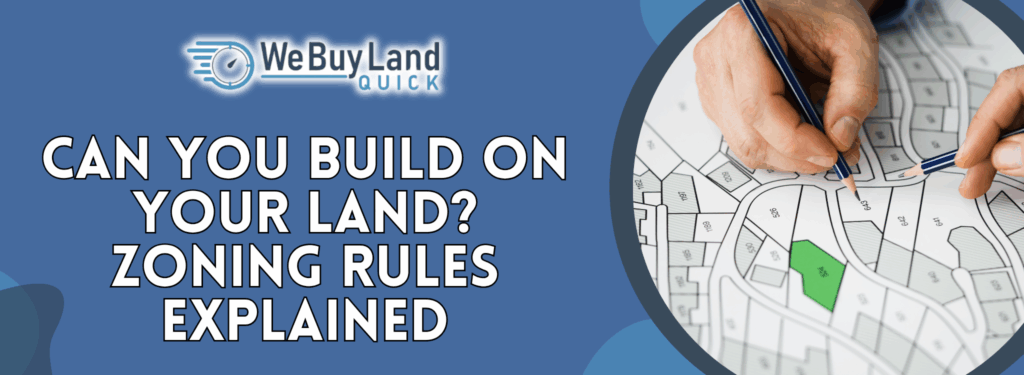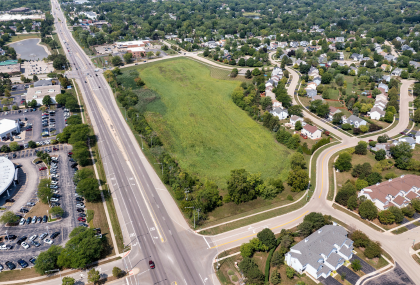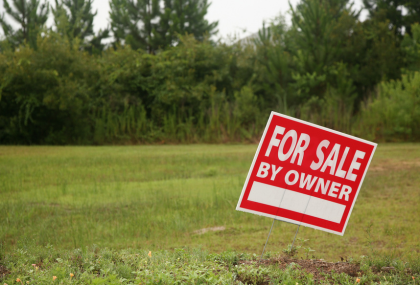
Exploring the History and Evolution of Urban Zoning Policies
Zoning rules for cities have existed for a long time. They were first made in the early 1900s, when cities struggled with growing populations and factories. The main goal of zoning laws was to keep residential areas away from industrial areas so people would be healthier and safer.

Zone rules became harder to understand as cities grew. They used to be rules about dividing land, but now they include rules about building heights, densities, and how things should look. There are now more concerns about the climate and a lack of affordable housing, so these rules have changed over time to meet those needs.
Essential court decisions and planning ideas have caused zoning to change over time. These changes still affect how cities use land today. Knowing this history is important to understanding how current zoning laws affect how things are built and how much they are worth.
The Role of City Planning in Shaping Zoning Guidelines
Planning a city is essential because it shapes zoning laws, which govern how land can be used and built upon. When making zoning rules that help growth happen in an organized way, urban planners consider many things, such as the number of people living in an area, the need for infrastructure, and environmental issues.
Different zones exist for residential, business, industrial, and mixed-use places. This way, city planning ensures that the land is used well and meets the community’s needs. This process keeps home prices high and improves life by keeping neighborhoods from being messed up by land uses that don’t go together.
Zoning rules also limit building height, buffers, and floor area ratios to ensure the city’s layout works well. As part of long-term plans, city planners work with other groups to make specific plans for how the city will grow. These plans are made by getting input from the people and making a long-term vision.
Understanding Zoning Laws: What You Need to Know Before Building
You should know the zoning rules that say what kinds of buildings can be built and how land can be used before you start a building project. Local governments make zoning laws to plan how cities grow and ensure that areas for homes, businesses, factories, and fields are marked.
Land owners are affected by these rules because they limit building heights, lot sizes, and activities that can happen in certain places. Check your local zoning laws before you start working to ensure that the use you want to give your land is allowed by its current zoning.
If your project doesn’t follow the rules set by the zoning authority, you might need to get waivers or special licenses. Remembering these things, you can avoid legal trouble, ensure your building meets the area’s standards, and get the most out of your land.
How Land Use Zoning Affects Real Estate Investments
Land use zoning is significant in real estate purchases because it dictates what kinds of buildings can be built and what types of activities can occur on a particular piece of land. Land is divided into different kinds of zones, such as residential, commercial, industrial, and agricultural. Each zone type has rules about building height, growth density, and allowed uses.
Investors need to know these zoning rules to ensure they follow them and get the most out of their property values. For example, buying land in an area zoned for residential purposes might make it harder to build businesses. In contrast, a mixed-use zoning designation can make it easier to create various things.
Real estate investors need to know about local zoning laws to make wise choices about possible returns and find rezoning opportunities that could raise the value of their properties. Also, changes in zoning rules can significantly affect the market by changing supply and demand in certain areas, which can change how people invest their money.
Commercial vs Residential Zoning: Differences and Implications
Understanding the distinctions between residential and commercial zoning is crucial for developers and property owners. Zoning laws regulate land use, which affects everything from building construction to real estate value.
Commercial zoning often permits businesses, retail stores, offices, and other organizations that do business or provide services to the general public. These areas are usually found in the regions that are easily accessible and have lots of foot traffic.
Conversely, residential zoning is only used for housing developments like single-family homes, apartment complexes, and condominiums. The primary objective of residential zones is to provide a communal environment with facilities suitable for families and single individuals seeking homes.
These zoning variations affect various factors, including property taxes, potential revenue generation, infrastructure requirements, parking facilities, noise levels, and environmental impact regulations. Property owners must carefully manage these regulations to optimize the profitability and utility of their land investment while adhering to local laws.
When planning any development project, it is essential to fully understand these distinctions because violating or misinterpreting zoning laws may result in legal issues and financial penalties.
Key Factors Influencing Zoning Decisions for Residential Areas
Several key factors influence residential area zoning decisions and ensure the property’s orderly growth and use. One crucial component is the local government’s comprehensive plan, which outlines long-term land use and growth objectives and establishes how residential zoning aligns with broader community objectives.

Population density is also important because zoning must preserve the quality of life while meeting current and future housing demands. The feasibility of adding new residences without burdening the current systems, road, sewer, and utility infrastructure capacity influences zoning restrictions.
Environmental considerations are also crucial. Zoning laws usually restrict the kind of buildings constructed and where they can be located to protect natural resources and minimize potential impacts on ecosystems. Property prices can also influence zoning decisions by balancing growth with maintaining or expanding local real estate markets.
Community input is another essential component; residents’ concerns about noise, traffic, and neighborhood character are considered when choices are made. Residential zoning regulations are influenced by state and municipal legal frameworks, which provide guidelines to ensure compliance with statutes while allowing for some flexibility to meet specific local needs.
Navigating Local Zoning Ordinances for Construction Projects
Local zoning laws dictate what kinds of buildings can be built and what the land can be used for. Any construction project must follow these rules. Local governments create zoning rules to ensure that growth happens in a planned way and that neighborhoods keep their unique character.
Knowing these rules will help you determine what kinds of uses are allowed for the land, like residential, commercial, or industrial ones, directly affecting how you plan your buildings. Zoning classes also set some rules. These include setbacks, lot sizes, height limits, and density limits.
Before starting any building project, you should check with the planning department and the local zoning map to ensure that the use you want to make fits with the current rules. Also, if your project doesn’t follow the current zoning rules, you might need special permits or waivers.
If you know about these rules, you might be able to escape expensive delays and legal problems during the building process. We Buy Land Quick is a local land buyer, and we buy land quickly and fast for cash. Don’t just take our word for it—learn why homeowners trust us and see how simple our process is. Curious about whether you should rent out land or sell it. Read about renting out land instead of selling it in this blog article.
The Impact of Zoning Regulations on Property Development
Zoning laws significantly affect property growth because they dictate how land can be used, directly affecting building projects. Local governments set rules that dictate what kinds of buildings can be built in certain places, such as residential, commercial, or industrial zones.
They say how tall buildings can be, how big lots can be, and how far back they must be from the building. These things can affect how a development project is designed and whether it can be built. Zoning rules also control the number of people living in an area and how the land can be used. This helps keep the character of communities and manages urban growth well.
Knowing these rules is very important for developers going through the permit process and ensuring they follow area rules. Not following the rules can cause expensive delays or legal problems that make it impossible to finish the job.
Also, some projects may need zoning changes or variances to proceed as planned, so developers must negotiate with planning boards or city governments. Zoning laws are very important for shaping the landscape of property growth and affecting choices about investment opportunities and project viability.
Sustainable Development: Aligning Construction with Environmental Regulations
Zoning rules govern what can be done with land, directly impacting building projects and property growth. Local governments set rules about the kinds of buildings in certain areas, such as residential, business, or industrial zones.
They say how tall buildings can be, how big lots can be, and how far away from the building they have to be. These things can change a project’s plan or make it impossible to build. There are also rules about how many people can live in a place and what the land can be used for. This helps towns maintain their style and keep urban growth under control.
People building things need to know these rules to get permits and follow the rules in the area. Not following the rules can lead to delays that cost a lot of money or legal issues that make it hard to finish the job.
Also, some projects may need changes or exceptions to the land’s rules to proceed as planned. Investors must talk to city governments or planning boards about the project. As you can see, zoning rules have a significant impact on how property values rise and fall, as well as on investment decisions and project success.
Sustainable Development: Aligning Construction with Environmental Regulations
More and more, sustainable development is being used to ensure that building projects follow environmental rules, especially regarding zoning laws. Understanding these planning rules is very important so that building projects follow the law and encourage eco-friendly practices.
Land use is often controlled by zoning laws, making it hard for builders to use environmentally friendly design elements like solar panels, green roofs, and rainwater collection systems in their projects. By following these rules, builders can lessen the damage their work causes to the environment, protecting natural resources and encouraging wildlife.
Zoning laws may also require that the effect on the environment and compliance with energy efficiency standards be evaluated before granting permits. This method ensures that new buildings benefit the environment by reducing their carbon footprints and promoting long-term natural balance.
Aligning development plans with these strict environmental rules helps cities grow in a way that is good for the environment and doesn’t violate local zoning laws meant to protect ecosystems and people’s health.
Variance and Special Use Permits: Making Exceptions to Zoning Codes
When working with zoning rules, property owners may find that specific regulations make building on their land harder or using it as they want to. In these situations, you must get a waiver or special use permit.

A variance lets a property owner break the rules for standard zoning because of special situations, like lots that aren’t round or some tough terrain. For example, a homeowner could ask for a variance if they want to build their home closer to the property line than is usually allowed.
On the other hand, special use permits let people use land in ways that aren’t generally allowed in a specific zoning area but can be done with some restrictions. This could mean opening a small business in a residential area or building schools, churches, and other community services.
Both methods need a good reason and usually include public hearings where neighbors can say what they think, whether they agree or disagree. Understanding local zoning laws and being well-prepared are essential for getting around these exceptions. You also need to show that the planned changes will not hurt the community around them.
Legal Challenges in Rezoning Applications: a Developer’s Guide
Developers who want to maximize their land may find it challenging to deal with the legal issues that arise in rezoning applications. Understanding the details of zoning laws is very important because community groups and local planning boards usually closely examine rezoning requests.
Developers need to consider possible legal problems, such as following the rules for land use and dealing with environmental impact assessments. Talking to experienced land use lawyers can help you make a strong case that fits the city’s overall plans and addresses public concerns.
During public meetings, developers must ensure that people understand how their projects fit in with community needs and goals for economic growth. The process might include talks with local governments to lessen resistance by making plans less strict or giving them more time to consider them.
Developers should also be ready to file appeals if their original rezoning requests are turned down. To do this, they must be well-informed about the administrative processes and legal options available through local government frameworks. At We Buy Land Quick, we are investor land buyers in Austin, and we buy fast for cash and skip the usual listing process. We’ve helped countless Austin landowners sell their land quickly and easily. Sell your Arlington land for cash, no repairs or cleaning are needed.
How Community Input Shapes Neighborhood Zoning Changes
When changing a neighborhood’s zoning, it’s essential to get input from the community because the people who live there usually know the most about what the area needs and how it works. Cities and towns typically hold public meetings where people can say what they think and voice their worries when they want to change the zoning rules.
By letting everyone participate, this process ensures that any changes to the rules align with the goals and hopes of the whole community. People can fight to keep green spaces, reduce the number of buildings, or support mixed-use projects that make walking to restaurants and stores easier.
City planners and officials learn a lot from these discussions about how changes people want to make might impact traffic, property prices, and the overall quality of life in the area. By letting the community have a say in zoning decisions, cities can create places that meet people’s needs and encourage long-term growth.
Best Practices for Engaging with Local Planning Commissions
Working well with local planning boards is vital for understanding zoning laws and ensuring the success of building projects. The first step is understanding the zoning rules that apply to your land entirely.

Attend the planning commission’s meetings to learn about its goals and decision-making process. Setting up clear, constant contact lines with commission members can be helpful, as a cooperative relationship may make it easier to get projects approved.
Presenting clear, well-thought-out plans that follow local zoning laws shows that you respect the rules and boosts your trustworthiness. Ask for feedback on early drafts of your plans before you officially send them in. This way, you can address any issues early on in the process.
Involving experienced professionals, like land use lawyers or urban planners, is also a good idea. They can give you sound advice on compliance problems and advocacy strategies. Reaching out to the community for support can help your case even more when you go before the planning board.
Preparing for Public Hearings on Proposed Land Use Changes
Understanding the zoning laws that apply to your property is essential before attending public hearings on proposed land use changes. Understanding the local zoning laws and how they affect building projects will let you contribute to conversations more effectively.
When developing land, knowing the many zoning classifications—such as residential, commercial, or mixed-use designations—will help you foresee possible problems and opportunities. Examining the comprehensive plan and any recent changes can help you understand the community’s long-term goals and priorities. This information may influence zoning choices.
Attending planning commission meetings or workshops will help you learn more about how anticipated changes may impact your property rights and building alternatives. Making a succinct presentation of your issues or viewpoint, backed up by data or professional judgment, will help you convey your case more persuasively at public hearings.
If you build relationships with neighbors or other important people who share your views, you may also be able to have your voice heard during these processes.
Essential Steps for Conducting a Land Use Study for Your Property
Conducting a land use study for your property is essential to understanding how zoning rules impact potential building projects. The first step involves researching local zoning ordinances and regulations to determine your land’s specific zoning classification.

This classification dictates permissible uses, such as residential, commercial, or industrial, and outlines restrictions on building height, density, and setbacks. It’s crucial to consult the local zoning map and comprehensive plan to understand future development intentions in the area.
Engaging with the local planning department can provide valuable insights into any recent amendments or upcoming changes in zoning laws that may influence your plans. Additionally, an environmental assessment helps identify any natural features or protected areas that could affect land use.
Understanding easements and existing covenants on your property is also vital, as these legal agreements can limit how you utilize your land. Collaborating with a professional planner or land use attorney can streamline this process by providing expertise in navigating complex zoning requirements and ensuring compliance with all regulations before proceeding with any construction activities.
Technological Advances and Their Influence on Smart City Zoning
Technological innovations fundamentally alter smart cities’ approach to zoning rules, influencing land development and use. Urban planners and local governments can make more informed decisions on zoning and land use by adopting technologies such as Geographic Information Systems (GIS), which enable them to analyze massive volumes of data.
These techniques provide more accurate mapping, allowing for more efficient resource allocation and land use optimization, contributing to the city’s sustainability goals. Smart sensors and Internet of Things (IoT) devices are required to track traffic patterns, infrastructure needs, and environmental impacts in real time, enabling dynamic zoning adjustments to meet changing urban demands.
Furthermore, developments in building information modeling (BIM) allow for better planning, assuring compliance with local requirements while fostering new architectural solutions. Blockchain technology reduces bureaucratic delays associated with traditional zoning procedures by speeding up permit processing and offering transparent property records.
These technological tools enable stakeholders to develop flexible zoning frameworks that improve urban living while meeting regulatory requirements as cities become smarter.
Helpful Texas Blog Articles
- How to Market Land for Sale: Top Tips
- A No-Lawyer Guide to Selling Land
- Guide To Selling A Part Of Your Land in Texas
- Selling Land To Developers In Texas
- Understanding The Vastness Of 100 Acres
- Selling Non-buildable Land In The Real Estate Market
- Can You Build on Your Land? Zoning Rules Explained
- Can You Rent Out Land Instead of Selling It?
- Comprehensive Guide To Evaluating Your Land’s Worth In Texas
- Understanding Closing Costs For Land Purchases In Texas
- How to Find Out the Zoning of My Land in Texas
- How to Sell Hunting Land in Texas
- Real Estate Commissions and Commissions on Land Sales in Texas

| PROPERTIES | BZA | BOARD OF ZONING APPEALS | MESSAGE | NON-COMPLIANT | POLICY |
| JURISDICTIONS | ACRES | U.S. | PRIVACY | EMAILS | NUMBER |
| LAWYERS | FACTORIES | FACTORY | APARTMENTS | HIGH-RISE | HIGH RISE |
| NEW YORK CITY | MUNICIPALITY | MOBILE HOME | MANUFACTURING | BONA FIDE | DWELLING |
| ARCHITECTURE | ANIMALS | TYPES OF ZONING |
